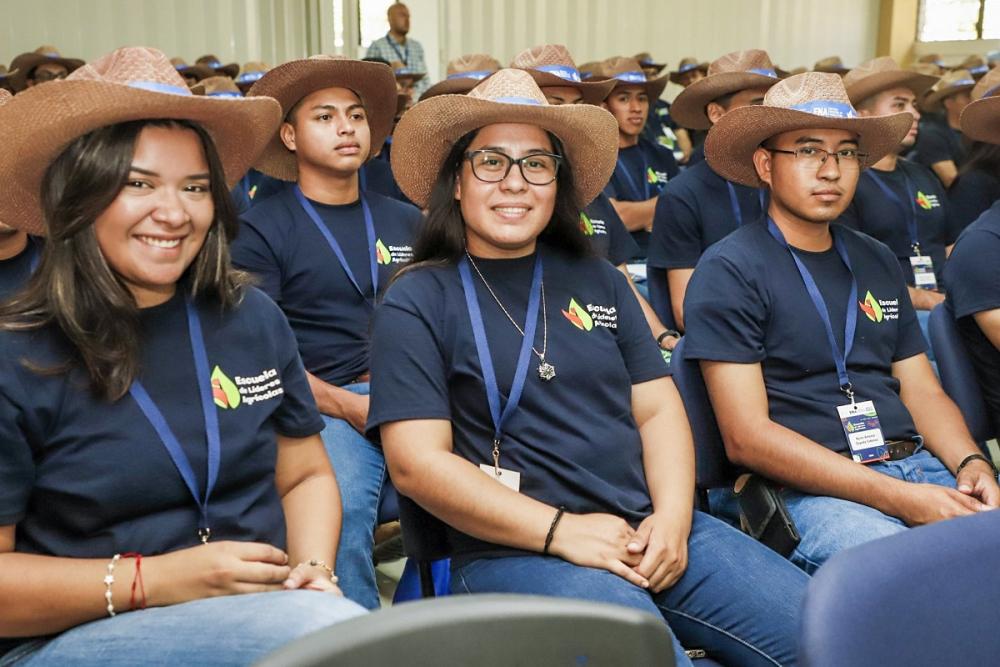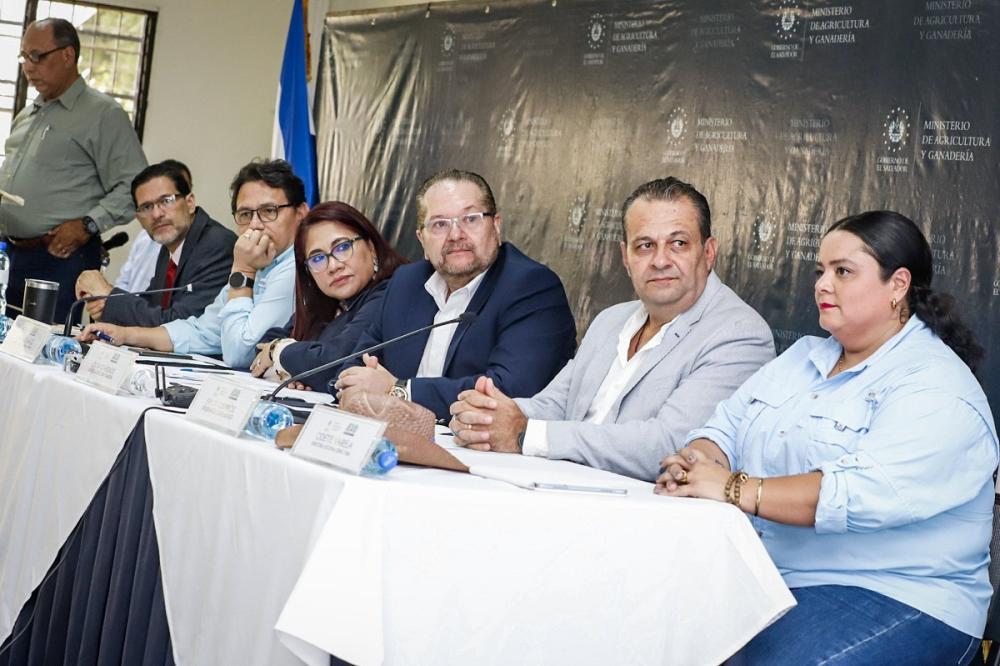In collaboration with IICA, El Salvador launches its Leadership School for the Transformation of Agrifood Systems

San Salvador, 14 July 2023 (IICA). El Salvador’s Ministry of Agriculture and Livestock (MAG) and National School of Agriculture (ENA), in collaboration with the Inter-American Institute for Cooperation on Agriculture (IICA), launched an initiative to build the technical and leadership capacities of 100 young farmers and agronomy students, so that they may use this knowledge to innovate in response to the tremendous challenges in today’s agriculture sector.
The Leadership School for the Transformation of Agrifood Systems (ELTSA), which was officially opened in San Salvador in the presence of authorities from the national agriculture sector and IICA, is aiming to train new generations in innovation and bioeconomy development, agroforestry and silvopastoral systems, production in protected environments and drip irrigation systems, among other areas.
The opening ceremony was attended by Oscar Guardado, Minister of Agriculture and Livestock; José Mauricio Pineda, Minister of Education; Odette Varela, Director of ENA’s National Center for Agricultural and Forestry Technology (CENTA); the Director General of IICA, Manuel Otero (via video); and the Institute’s Representative in El Salvador, Erick Quirós, who were joined by other authorities, specially invited guests from the diplomatic corps, cooperation agencies and the Leadership School students.
ELTSA will also seek to mobilize political, social, financial and technical support from national, regional and global organizations, with a view to fueling agrifood system transformation in the Americas to increase food production, while using fewer resources and ensuring greater sustainability and inclusiveness.
At the opening ceremony, Guardado revealed that during a recent meeting with the IICA Director General they had spoken about the importance of ELTSA and the training of youth, in view of the complex circumstances affecting agriculture in the world.
“We are most concerned about the realization that climate change is here to stay. We cannot consider the food production aspect of agriculture alone but must ensure that it is environmentally friendly. Climate phenomena are affecting the entire region and we must work together to find solutions”, he maintained.
On the other hand, the Minister of Education remarked that, “In this country, informal education has often been viewed as insignificant, but this government is trying to change that. We must invest in information education. It is imperative that education systems adapt to climate change and its consequences”.

IICA Director General, Manuel Otero, stated in his message that, “Only through innovation will we able to overcome challenges such as feeding the world and tackling the effects of climate change. That is why ELTSA is so important to equip upcoming generations with more tools to ensure that agriculture and livestock production are prosperous and sustainable activities”.
Quirós, the IICA Representative in El Salvador, reminded the students that they represent the future of agriculture. He said, “I invite all of you young people to become agents of change, with new ideas”.
The school will offer three training modules that will instruct students in innovation and biotechnology, climate smart agriculture and digital agriculture.
The training program will provide theoretical and practical knowledge, covering issues such as the importance of biotechnology for innovation and the sustainability of agrifood systems, the gender perspective and the inclusion of youth in agrifood and agricultural systems.
In 2022, the first agricultural Leadership School was organized in Costa Rica, enjoying the participation of approximately one hundred young people from agricultural organizations and technical schools from the country’s rural areas.
IICA’s Digital Fabrication and Community Innovation Laboratory (FabLab-LINC) spearheaded the implementation of the digital agriculture module, providing training in drone operation, 3D printing and electronic prototyping.
In addition to El Salvador, this year the Institute plans to expand this project to Honduras and the Dominican Republic.
More information:
Institutional Communication Division.
comunicacion.institucional@iica.int